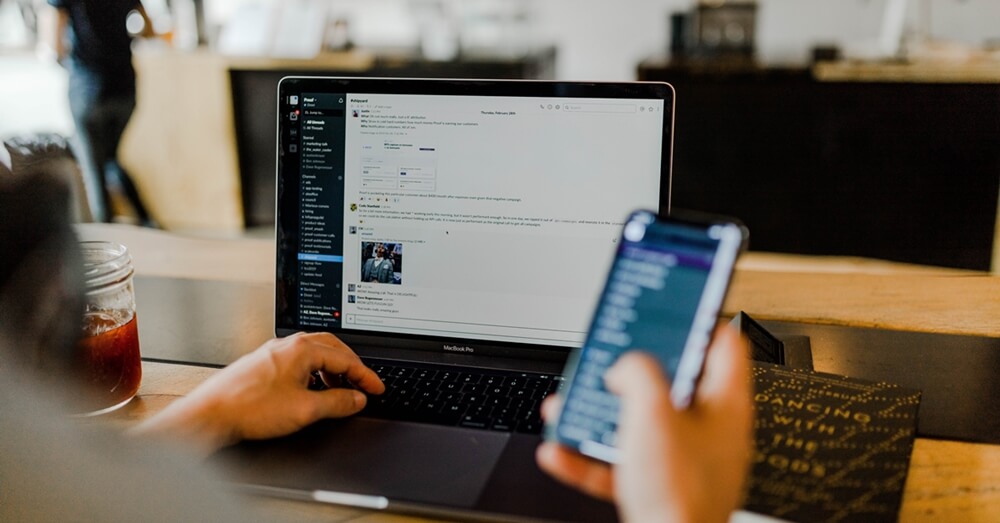Social media is where teens find their tribe, craft their identity, and pulse-check the world around them. But somewhere between the first innocent scroll and the hundredth, harmless connection morphs into something more insidious, pulling focus and fracturing productivity. Let’s take a look at the relationship between social media and academic performance, including how you, as a parent, can help shift focus back to what’s important.
Highlights
- Social media addiction in teens is a compulsive behavioral pattern driven by platforms engineered to hijack dopamine pathways.
- Excessive use fragments attention and can erode study quality
- Emotional consequences like anxiety, depression, and FOMO follow teens offline, undermining classroom confidence and academic engagement
- Effective intervention begins with empathy and boundaries, not blanket restrictions
- Screen-free zones, collaborative tech tools, and prioritizing sleep hygiene help teens reclaim focus without sacrificing connection
Quick Read
Social media transforms from a benign connection to a cognitive saboteur when compulsive use erodes study time, fractures attention, and destabilizes emotional well-being. The path forward is helping teens develop the awareness and tools to navigate their connected world with intention, establishing boundaries that protect both academic performance and the emotional equilibrium necessary to thrive.
What Is Social Media Addiction in Teens?
Social media addiction manifests as a compulsive pattern, or a behavioral loop that colonizes daily life, infiltrates academic hours, and destabilizes emotional equilibrium. Teens experience phantom vibrations, lose entire afternoons to algorithmic rabbit holes, and find themselves unable to disengage even when every fiber of their being wants to.
Social media then becomes the salve for everything, such as stress, ennui, loneliness, and the discomfort of simply being. Platforms engineer this dependency with surgical precision. Infinite scroll eliminates natural stopping points. Variable rewards, such as likes and comments, hijack the brain’s dopamine circuitry with the efficiency of a slot machine. For adolescents, whose prefrontal cortex is still under construction and impulse control remains a work in progress, resisting these neurological hijackings isn’t a matter of willpower. It’s an uneven fight.

How Social Media Affects Productivity in Students
Social media just about eviscerates productivity through attention fragmentation, procrastination proliferation, and the systematic degradation of work quality. Teens convince themselves they’re multitasking (toggling between calculus problems and TikTok with Olympic speed), but neuroscience tells a different story. What’s actually occurring is cognitive whiplash: rapid task-switching that saps efficiency and leaves the brain mentally exhausted.
Research reveals that even the mere presence of a smartphone diminishes concentration, though some research does contradict this as well. Even so, a phone lying next to your child as they try to study may still tempt them to check their notifications, scroll, or respond to messages. The impulse to stay connected can interrupt focus before they even realize it.
What Are the Effects of Social Media on Study Habits?
Excessive social media use doesn’t just interrupt study sessions; it dismantles them. Routines crumble, motivation evaporates, and information retention becomes a casualty of continuous partial attention. Teens might spend three hours with textbooks splayed across their desks, but accomplish what twenty focused minutes could have achieved. The collateral damage extends even further, leading to things like:
- Shortened attention spans
- Poor time management
- Reduced deep learning
- Increased procrastination
What Are the Real-World Academic Consequences?
Declining grades. Forgotten assignments. Diminished classroom engagement. Motivation that flickers and dies. These are just a few examples of how social media addiction translates to real-world academic consequences. The surface narrative often deceives as well. A teen appears to be “doing homework,” but the actual cognitive engagement tells a bleaker story. Work quality deteriorates. Procrastination becomes the default mode. Deadlines slip past unnoticed. Test preparation devolves into frantic, last-minute cramming. The architecture of social media (instant gratification, dopamine hits on demand) creates impossible competition for the delayed, uncertain rewards of academic achievement.

How Can Parents Help Teens Reclaim Focus and Improve Academic Performance?
To help, first start by extending empathy and support, rather than opting for immediate restrictions on when and how they can use social media. Social media platforms are designed to be habit-forming, so expecting your child to manage their use independently isn’t as realistic as you’d think. The goal isn’t to eliminate social media entirely, but rather to build healthier habits that support academic success and emotional well-being.
Tips to Create a Healthier Tech-Life Balance
Here are four strategies that can make a real difference:
Establish Tech Boundaries
Create consistent phone-free zones and times during homework, meals, and before bed.
Utilize Digital Tools Together
Apps like Forest, Freedom, or Focus Mode can help limit distractions during study hours. Let your teen participate in choosing tools to boost their sense of control and buy-in.
Create Accountability Systems Without Surveillance
Rather than monitoring every click, establish regular check-ins where your teen can assess their own usage patterns. Ask open-ended questions about how social media makes them feel and whether it’s serving or sabotaging their goals.
Reframe Academic Goals Around Intrinsic Motivation
Help your teen reconnect with why their education matters beyond grades and college applications. When learning feels personally meaningful rather than performative, the delayed gratification of academic work becomes more compelling than the instant hits of social media.
Key Takeaways
Teens today are growing up in a world that demands constant connection. It’s not easy to navigate, and with social media affecting concentration, the stakes for academic performance are high. But with clear boundaries, open communication, and, when needed, professional guidance, teens can learn to use social media in ways that support rather than sabotage their success.
Social media itself isn’t the enemy; however, if its use remains unchecked, it can become a serious barrier to focus and learning. Start now by helping your teen create a better balance between their online lives and their real ones. That means setting boundaries with screens, prioritizing face-to-face connection, and using social media intentionally instead of reflexively.
Is your teen still struggling to step away from their screen after attempting to help them? If so, Paradigm Treatment can help. Our social media addiction program helps teens rebuild focus, confidence, and healthier habits, both online and off. Contact us today to learn more about how we can work together.
Cited Sources
- Amirthalingam, J. & Khera, A. “Understanding Social Media Addiction: A Deep Dive.” Cureus 16(10): e72499 (2024). PMC 11594359. Cureus+1
- “The Neuroeconomics of Attention: How Social Media Shapes Our Choices.” Aeternus. Retrieved from https://www.aeternus.rs/the-neuroeconomics-of-attention-how-social-media-shapes-our-choices/
- Waterhouse, C. (2025, June 5). Cognitive Whiplash. Absurd Intelligence. Retrieved from https://www.absurdintelligence.com/cognitive-whiplash/ Absurd Intelligence
- Skowronek, J., Seifert, A., & Lindberg, S. (2023, June 8). The mere presence of a smartphone reduces basal attentional performance. Scientific Reports, 13, 9363. https://doi.org/10.1038/s41598-023-36256-4





 November 12, 2025
November 12, 2025 Reading Time: 6m
Reading Time: 6m